
Homework before you sign a sales agent
Further to my last blog, here’s a little advice on working with sales agents. Before you sign with a sales agent, it is critical to do some homework to figure out whether the deals you could get with their help will be better than the ones you could get on your own.
-What films has this company sold? Are they similar to the kind of film you have? Do those films have the same assets (cast, budget level, festival pedigree, cause or interest based)?
-Where did they sell? Domestically or internationally? Only very large agencies have the ability to handle both and sometimes a large agency won’t be a good fit for smaller films. Bigger slate=less attention to go around. Bigger agencies tend to give preferential treatment to their bigger name clients so if you are just starting out or haven’t built up a strong name yet, don’t expect to get red carpet service.
-For what kind of prices? This may get cagey as many people in the film business don’t like to talk about other people’s deals (unless it is gossip of course!), but they should be able to give a realistic narrow range of what you can expect based on similar films they have sold.
-What are the terms? Query if the fee to the sales agent and recouped expenses are worth it or if you can just do the couple small deals directly…
-Was the revenue remitted to the filmmaker? Can the agent collect? You should want to know what percentages and recoupment will reduce your share of the sale as well as this agent’s track record for collecting from distributors and paying filmmakers. On this question, you’ll need to contact the filmmakers who have worked with the company and see if they did receive their advances and further revenue. We always recommend making sure that all rights terminate upon material delay of payment. Be specific and be clear so you are not stuck in a deal where you won’t be paid.
Agencies love to show off nice catalogs of films they represent, but a list of titles will not tell you the information you need to know if you want to make your money back or make it back for your investors.
If a sales agent or lawyer approaches you or you want to approach him or her to sell your film, drill into the details. Even on the LGBT front not all films are alike. Not all of them can do the same deals, or any deals at all. Not all have the same revenue stream potentials. Documentaries are different from narratives, for example. And of course this is true of other categories of films. One of the hardest for TFC to handle and one of the hardest to sell in general, especially out of a non-A-list festival, is a drama without name cast.
Working with a sales agent that is taking a 10% commission off of the sales she brings in doesn’t bother me. 10% is not a lot of money for an agent who brings in a six-figure advance, and most likely she will bring in less for the majority of independent films. But I am concerned about paying a producer’s rep a big up-front fee, as there are many bottom-feeding producer’s reps whose business model is only collecting the fee and offering little else. For a good one who offers invaluable advice in the early stage of production and whose contacts may indeed be useful, it could be worth paying for. It is easy enough to Google someone’s name and see the kinds of projects with which they have been associated. If the only sources citing their involvement belong to sites they run, be cautious about making upfront payments and giving an ownership stake in your work.
Let me end with saying any industry professionals reading this please, please share the types of films you are handling and the deals you are doing, be specific. We share our film slate and numbers and if you do too, filmmakers can make educated choices.
I think much of the time filmmakers will still want someone else to handle their distribution and may be happy to do deals even if there is no profit, if only to establish and develop their careers. But let them make that choice as informed filmmakers, not still clinging to the allure of the 1990’s.
Orly Ravid July 25th, 2013
Posted In: Distribution, International Sales
Tags: collection, film sales agents, independent film, Orly Ravid, Producer's reps, terms
Dorothy, we ARE in Kansas. Forget about Oz
I feel like a broken record. There is nothing I am writing here that I have not said and written many times before. Still. After all that has gone on in distribution. The willful blindness of filmmakers believing in the Oz fairytale of going to a festival, A-list or otherwise, without putting in the work of building an audience around their film, with the hope of a big sale. It is an unsupported hope of a deal that does not merit the delay of doing the work to connect with fans. They may go with a very skilled sales agent, and yet the sale that is made, if any, is one that the filmmaker could have done directly without giving up rights to their film and possibly even have done without signing such agreements because the offer was too low.
To be honest, we’re big fans of doing distribution deals in tandem with direct distribution by the filmmaker, so it’s not doing the deal that bothers me, especially not if it’s a good offer and additional work is going to be performed by the distribution company in service of the film. What is a big deal is the lost marketing opportunity that comes from waiting for this mythical deal for too long. The failure to capitalize on all the buzz and press that happens at a festival which gives a small film the launch it needs to resonate with fans and convert them to purchasers. Too many times, the filmmaker is told (by the industry) to hold out for an offer that never comes. The real indie film landscape looks much more like Kansas after the tornado, rather than the Emerald City. There is no yellow brick road that leads everyone to “the wizard” with the money. We are all building our own road.
This myth of waiting for the big offer is perpetuated in the press and by the industry. A few films get lucky and go to Sundance, SXSW, Cannes etc., and, for one reason or another, a distributor pays a lot of money to buy them. Why does that happen? Sometimes “festival fever” is high among the buyers to compete with each other and pressure to make higher bids than they should. Sometimes it’s a new distribution company trying to prove itself by outbidding more established players. Sometimes it’s personal like wanting to produce the director’s next film. Sometimes a film warrants paying good money for it, so sure is the buyer that they have an audience winner, or film that will be critically acclaimed or a major award winner. In any case, that happens very few times a year to be sure. MOST deals these days (relative to the number of films made and even shown at festivals) are not like that.
Generally, the money offered upfront does not even make the investors whole. The money ultimately remitted to the investors does not yield a profit most of the time for films without big name cast or at the top of their genre category. It seems to me filmmakers focus on the exceptions, the success stories, and ignore the rest of the data.
I was asked via our Facebook page to estimate what the budget for LGBT films should be because it is the kind of films we have A LOT of experience handling. Based on all our work in that space, I can say if you make your film for more than $150,000, you are taking a big risk of remaining in the red. It may still be a risk that at that price, but if it has decent production value, a very good story and pops at the right festivals, you can do deals and DIY and monetize all revenue fronts to make that budget back… maybe even as much as $250,000. But again, that is the exception, not the rule because there are a lot of Ifs in that last sentence. Often the revenue outcome is less in fact. Time to get to know the real story, not the ones being perpetuated to show financial success as the norm.
What I am urging now is to be MINDFUL OF TIME and LOST OPPORTUNITY and not just search for the yellow brick road expecting the wizard to make magic happen for your film. There’s just not that much magic left. While there still is some talent “getting discovered” (and to be honest this is often happening first in lab programs, not at prestigious festivals), big deals being done, careers being made (this happens annually at Sundance and even SXSW), you need to be honest with yourself about where your work lies in that realm of possibility based on the elements you have in place right now. At least have a back up plan put into action that sets up the film for capitalizing on the audience you have been building and continue to build at first shot out in public. So many films lose that chance and it will never come again for them. The task is too arduous to start all over again after the glare of the initial media and attention dies down.
This would not be a Film Collaborative post if I did not share some data with you about what is happening with films that are building their own roads to “Oz.” More specifics will be provided in the next post because we are waiting for it to come in, but for now let’s take a look at one avenue that filmmakers are still questioning, selling streams from their own website.
At Sheffield DocFest, Sheri Candler talked to DIY platform DISTRIFY with whom TFC works as does Wolfe Video, for example. Filmmakers should think about using services such as Distrify for both the purpose of selling off one’s site(s) and/or if one’s conventional distributor partners with the service (in which case hopefully the filmmaker has an affiliate relationship and receives a healthy percentage from any sales they make from their own website). Distrify cautions that for the most part filmmakers think they can put a film on a platform and wait for the cash to roll in. “We have probably 3,000 films on the service now and I’d reckon that nearly half have never sold at all- because they’ve never told anyone that they are there!,” said Peter Gerard, co founder of Distrify. For stronger films that appeal to an identifiable niche, if filmmakers make the effort to audience-build and market to that audience, Gerard says those films sell a few thousand units… For the UK, for example, these numbers are compatible with conventional DVD sales and the market as a whole. A market that is a fraction of the one in the US.
Gerard also says “Mailing lists are still the most effective way to sell – our data shows that a well-written and well-targeted mail-shot converts at a much higher ratio than Facebook or Twitter posts. Gathering Facebook likes or followers is maybe somewhat helpful, but is primarily a vanity exercise. The top-performing films focus on direct links with people via emails, blogs, and real-life events.” All this stuff TFC’s been shouting about for years (build an email list, build relationships with fans etc) can be verified in the data! We want to add that building your Facebook and Twitter accounts can demonstrate appeal to distributors seeking to assess a title to buy so we still recommend it if you are looking to make a sale. And, in the US, it may help drive awareness for the sake of building demand on commercial platforms such as Netflix.
Gerard goes on to note: “I don’t think it helps most people to say this movie made $40k or this one made $20k. I think that can be misleading because I firmly believe there is no such thing as an “average low budget film” nor a “usual amount of marketing”. We work with a wide gamut of films, and success is measured very differently depending on a range of factors. We’ve had some filmmakers earning a few hundred bucks a week and re-investing that immediately into low-budget production of serial dramas or new films. We’ve paid Nigerian filmmakers 4-figure sums recently. A first-time filmmaker earned $10k in a few weeks on a super-niche short documentary and re-invested the profits into both charity donations and DVD production for selling on the ground via real-life social networks. All of these are considered big successes for the people involved.” One of TFC’s filmmakers will be a case study down the line as the film has been a standout performer on Distrify, but that is because of the filmmakers’ efforts, her long-standing brand, and also efforts of her distribution partner.
In another future post, we will be highlighting a filmmaker who has taken a completely different path to releasing his work. Rather than living in NYC or LA, he lives in Memphis, TN, a way cheaper place to live and to film in. He has built a respectable following of his own because he’s tapped into a specific niche (not LGBT) audience that is large enough to support the films he is making.
He seems happy and his sustainable filmmaking career is a refreshing reminder that it is possible to turn away from conventional wisdom on how things in the film business work. He’s is building his own road and it might never lead to Oz, but he is the wizard pulling the levers for his work in the “post tornado Kansas” that is today’s indie film landscape.
Orly Ravid July 18th, 2013
Posted In: Distribution, DIY, Film Festivals, Marketing
Tags: direct distribution, Distrify, Film Festivals, filmmaker fairytale, independent film distribution, Orly Ravid, Peter Gerard
Following up on TFC filmmakers-The documentaries
Last week, I brought you up to speed with some of our clients from the narrative side and now I want to let you know about some of our documentary talent.
One of the perks of working with The Film Collaborative is that I get to help these important stories reach a wider audience. Our docs have been nominated for multiple Emmy Awards, Independent Spirit Awards, and have won both Audience and Grand Jury prizes at Sundance. In fact, Kalyanee Mam’s A River Changes Course won the World Doc Jury Prize at Sundance earlier this year. As a history buff and political activist, I think these filmmakers and their subjects all deserve special attention. I would also like to recognize that Marta Cunningham recently won the jury prize for best doc at Frameline where her Sundance doc Valentine Road was the centerpiece. In addition Yoruba Richen‘s LAFF doc The New Black won the audience award at Frameline and AFI (in the same week!). The film was also an honorable mention for the jury prize at Frameline. Below is just a small sampling of the visionary truth tellers we have worked with.
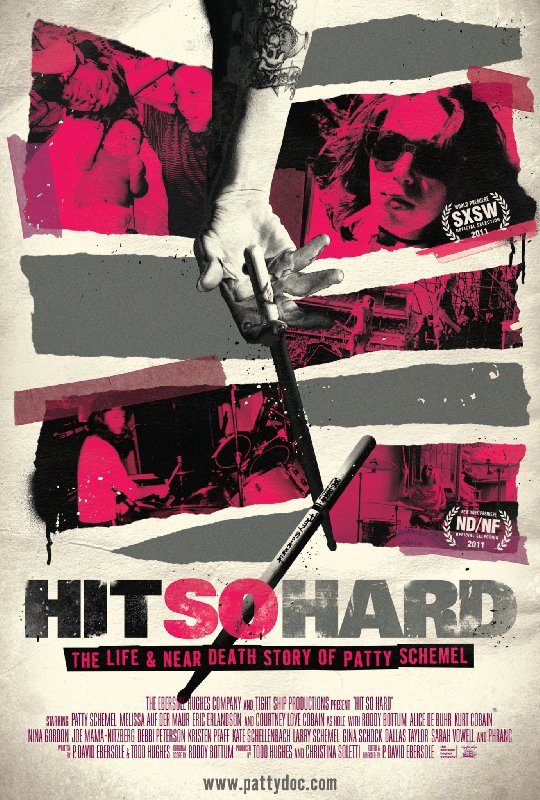
P. David Ebersole and Todd Hughes are the ultimate power duo in the doc world. Their charm, passion for their work, and sheer charisma almost makes me forget that they work behind the camera. We handled festivals and advised on distribution for their 2011 doc Hit So Hard which premiered at SXSW 2011and was released theatrically by Variance. The film was nominated for a GLAAD media award and even helped get the band, Hole, to reunite. In the short time since, they produced conspiracy theory doc Room 237 based on Kubrick’s film The Shining which world premiered at Sundance 2012 and even went to Cannes! The film grossed over $250,000 in its North American release. Ebersole directed and the duo produced the Lifetime Doc Dear Mom, Love Cher.
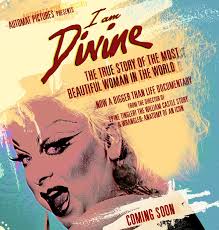
Jeffrey Schwarz’s doc Vito world premiered at NYFF 2011 and screened in Berlin 2012 before opening both Outfest and Frameline and airing on HBO. Like Hit So Hard, it was also nominated for a GLAAD media award. Schwarz is as beloved for his films as he is for his flawless EPK’s. He is back with TFC for his latest doc, I Am Divine, a look at the life and talent of the ultimate John Waters muse which world premiered at SXSW 2013 and was recently acquired by Wolfe Releasing. We are handling festivals and international sales.
Jennifer Arnold’s poignant and inspirational doc A Small Act debuted at Sundance 2010 and went on to air on HBO and was nominated for an Emmy! Since then this dynamo has been hard at work. She directed the doc segments Glee: The 3D Concert Movie, her ESPN doc The Diplomat was just at Tribeca and she has directed for the shows TableTop and Biz Kids.
David Weissman is a San Francisco icon. His films The Cockettes and We Were Here both brought important parts of Gay SF history to a wider audience and world premiered at Sundance. We Were Here went onto screen at Berlin and play a full week theatrical engagement at the 1,400 seat Castro theater. This touching doc on early AIDS activists was released theatrically by Red Flag Releasing, nominated for a Spirit Award and short listed for the Academy Award. Since its release, he has been generating headlines for highlighting his own problems in dealing with the sky high rent of the city and the harm imposed by the Ellis Act. He has since moved to Portland full time where he programs the only Queer Doc film festival in the world.
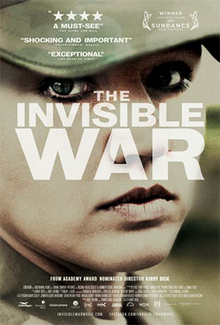
Then there is Kirby Dick and his film The Invisible War. TFC sold the film to New Video and Cinedigm (who have since merged) shortly after it won the Audience Award at Sundance 2012. This hard hitting doc about the rape and sexual abuse of soldiers in the US military has screened multiple times at the Pentagon and been cited for the changes in how the military handles sexual assault cases. It maintains a 100% rating on Rotten Tomatoes and was nominated for an Academy Award. In addition to sales, TFC handled festivals, broadening the stories of these victims’ to be heard all over the world. Given his prolific library of work (he’s had five films in competition at Sundance) we cannot wait to see what he does next.
The Film Collaborative feels very fortunate to have worked with filmmakers of this caliber and we look forward to seeing what the future holds for all of them.
Bryan Glick July 11th, 2013
Posted In: Distribution, Filmmakers of note
Tags: A River Changes Course, A Small Act, David Weissman, documentaries, Hit so Hard, I am Divine, independent film, Jeffrey Schwarz, Jennifer Arnold, Kalyanee Mam, Kirby Dick, Marta Cunningham, P. David Ebersole, The Film Collaborative, The Invisible War, The New Black, Todd Hughes, Valentine Road, Vito, We Were Here, Yoruba Richen
Following up on TFC filmmakers-The narratives
The Film Collaborative has been around for over three years now and in that time we’ve seen our films and members go on to win multiple audience and jury awards at Sundance, get nominated for Oscars and win Emmy’s, last year alone we had 6 films nominated for Independent Spirit Awards.
Not only are we dedicated to our current clients, we are just as invested in our filmmakers’ future projects and we wanted to follow up on what some of our TFC Alumni have been doing. This week we’ll highlight some of our narrative film directors.
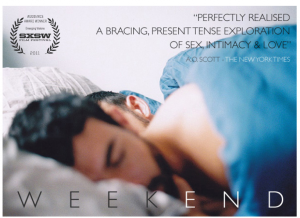
Andrew Haigh’s Weekend took SXSW 2011 by storm, won the audience award and was released in the US by IFC/Sundance Selects. Andrew most recently directed an HBO pilot about the lives of gay men in San Francisco that was just picked up to series. The show, starring Jonathan Groff, will premiere in the spring of 2014.
Aurora Guerrero’s debut feature Mosquita Y Mari premiered in the NEXT section at Sundance 2012 and was acquired by Wolfe Releasing. It was nominated for an Independent Spirit Award and Aurora is hard at work on her follow up Los Valientes. She was awarded a $35,000 grant by San Francisco Film Society and we can’t wait to see what she has up her sleeve for this film.
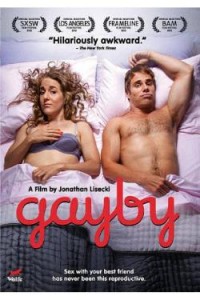
Jonathan Lisecki’s witty banter shined in Gayby which debuted at SXSW 2012. Nominated for a Spirit Award for Best First Screenplay and released by Wolfe, the film has been making audiences laugh around the world. In fact, it reached as high as #5 on iTunes during Pride Week after being chosen as Movie of the Week by Apple. Jonathan co-produced and stars in Big Gay Love opposite Nicholas Brendan (Buffy The Vampire Slayer). The film just screened at Frameline and will be coming to Outfest later this month.
Spike Lee is certainly one of the more prolific filmmakers to come our way. Red Hook Summer premiered at Sundance 2012 and grossed over $300,000 when it was released theatrically by Variance. In what has been a busy year for the bold auteur, his documentary Bad 25 premiered at the Toronto Film Festival 2012 and aired on ABC. He has multiple films lined up in the next year.
Ira Sachs is another indie veteran, but his film Keep the Lights On brought him his widest audience to date. It premiered at Sundance 2012, won the teddy at Berlin, and was nominated for four Spirit Awards. It was snatched up by Music Box and was the highest grossing gay film of the year. Since then, Ira was named a Guggenheim Fellow and his follow up Love is Strange stars Alfred Molina and Michael Gambon.
Special Producers Shoutout
Laura Heberton, who produced Gayby, had Matthew Porterfield’s I Used to be Darker at Sundance this year and Bluebird at Tribeca.
Chad Burris’s film Ass Backwards brought him back to Sundance just one year after Mosquita Y Mari.
Next week we’ll take a look at what our documentary filmmakers are doing now.
Bryan Glick July 3rd, 2013
Posted In: Filmmakers of note
Tags: Andrew Haigh, Aurora Guerrero, Chad Burris, Gayby, independent film, Ira Sachs, Jonathan Lisecki, Keep the Lights On, Laura Heberton, Mosquito y Mari, Red Hook Summer, Spike Lee, TFC filmmakers, The Film Collaborative, Weekend

